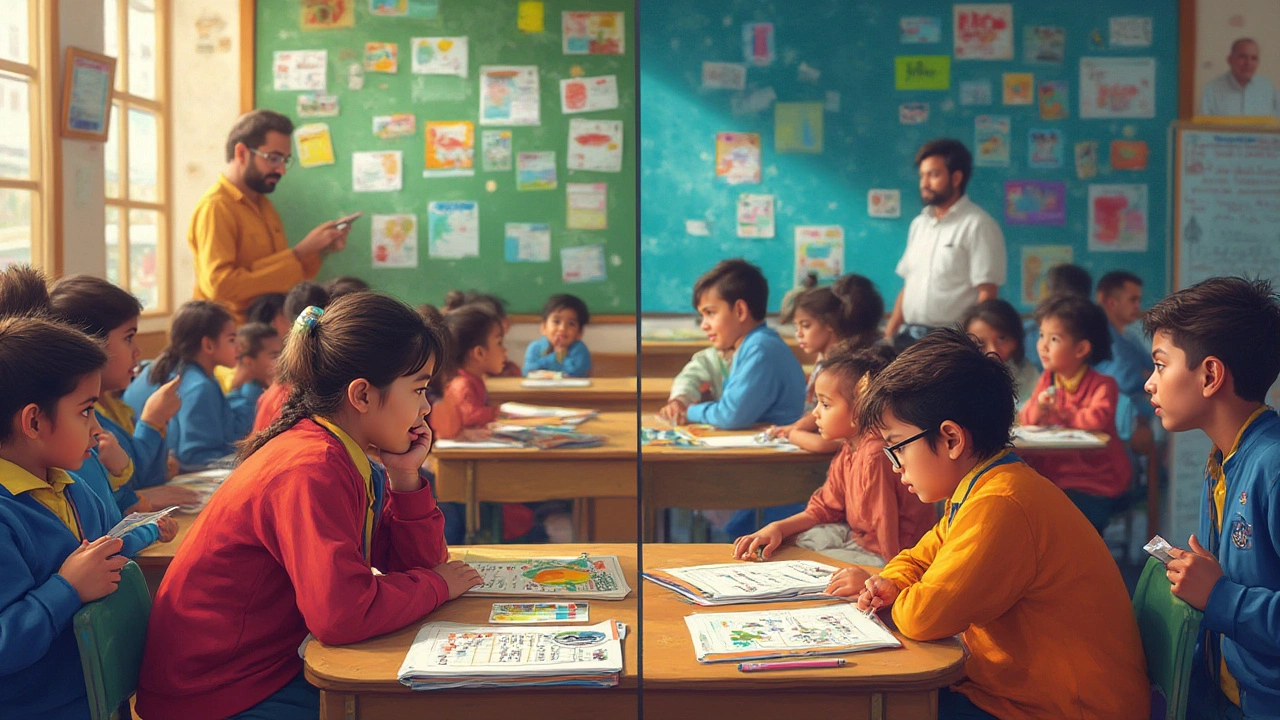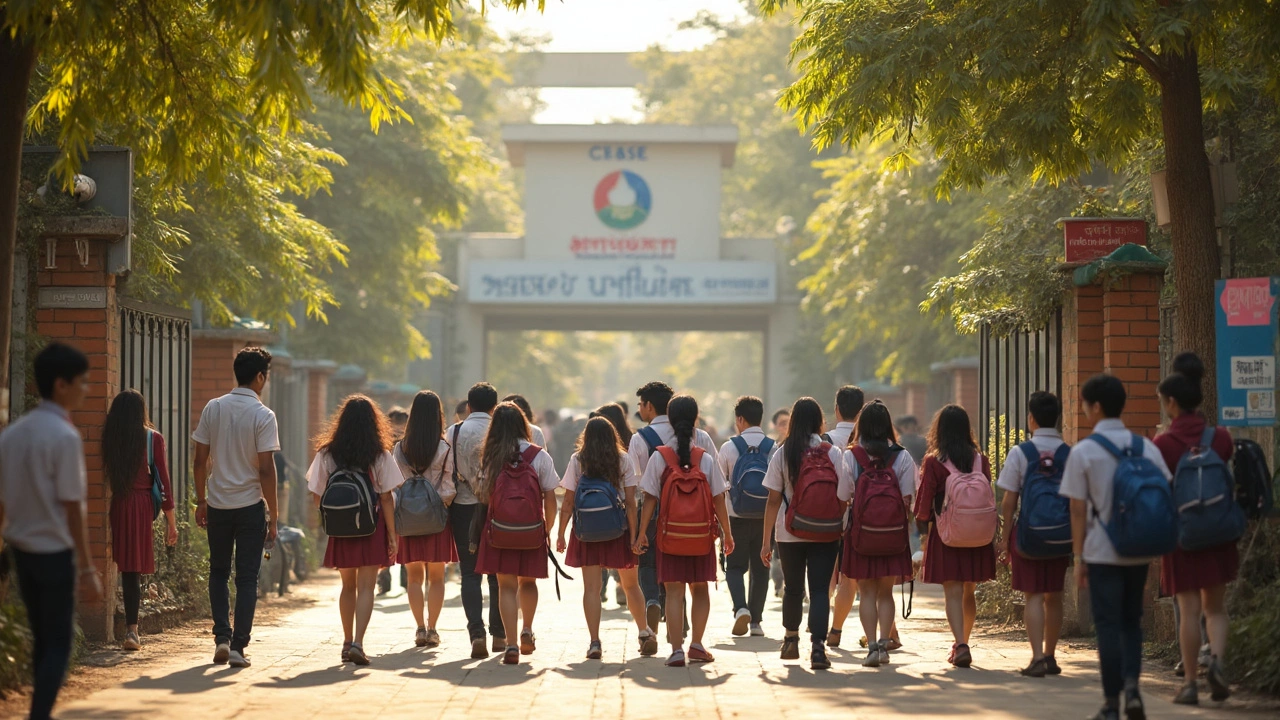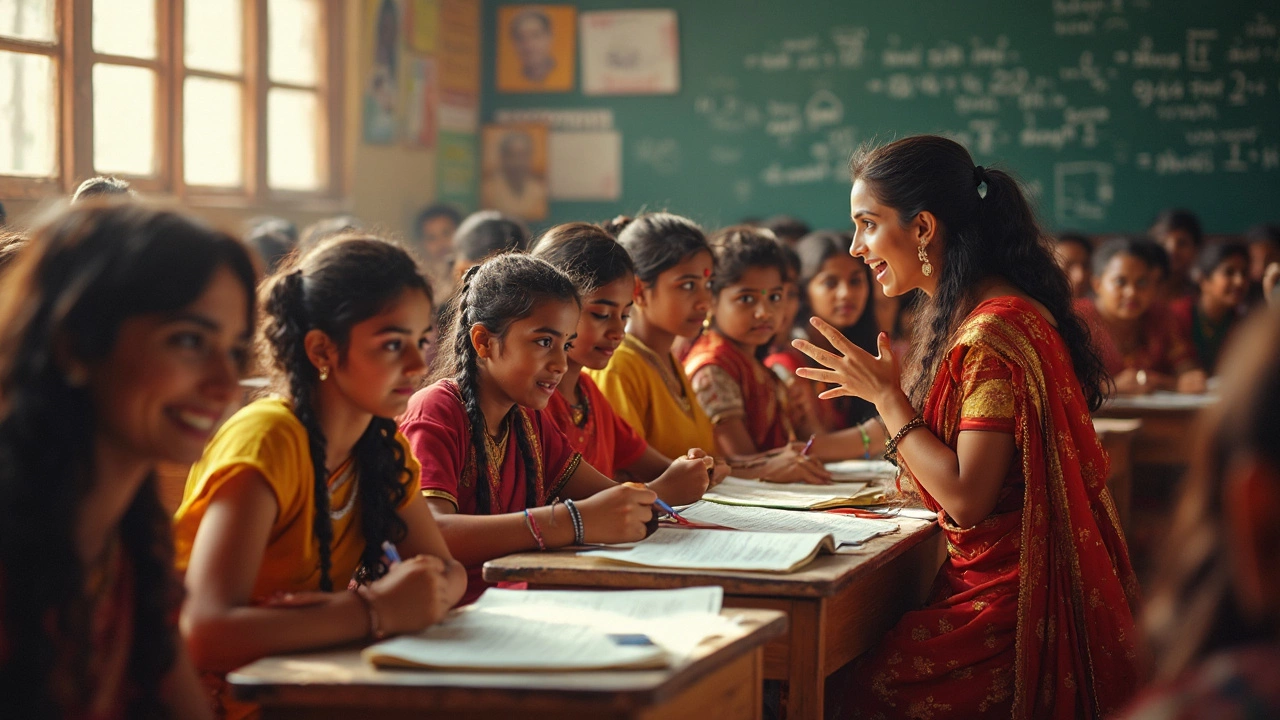CBSE – India’s National School Curriculum
When talking about CBSE, the Central Board of Secondary Education, India’s national K‑12 curriculum authority. Also known as Central Board, it sets uniform standards for textbooks, teaching methods, and assessment across thousands of schools. IB, International Baccalaureate, an internationally recognized program and Cambridge, Cambridge Assessment International Education, a global school certificate system are often mentioned as alternatives, while NEET, National Eligibility cum Entrance Test for medical colleges in India is one of the high‑stakes exams that CBSE students aim for.
CBSE encompasses a nationwide curriculum that covers subjects from math and science to languages and social studies. It requires schools to follow the NCERT textbook series, which ensures a consistent knowledge base for all students. Because the board designs the Class 10 and Class 12 board exams, it influences university admissions and scholarship eligibility. This link between school learning and higher‑education pathways makes CBSE a pivotal piece of the Indian education system.
What Makes CBSE Unique?
One key attribute of CBEE is its focus on conceptual understanding rather than rote memorization. The board’s assessment style pushes students to apply concepts to real‑world problems, which is why many coaching centers tailor their material to match CBSE’s pattern. Another attribute is the flexibility it offers schools to incorporate extracurricular activities and skill‑based learning, a move that aligns with the growing demand for holistic education.
When you compare CBSE with IB, the difference is clear: IB emphasizes inquiry‑based learning and includes a Theory of Knowledge component, while CBSE sticks to a more structured syllabus. This contrast influences how students prepare for competitive exams. For instance, a student following CBSE will often supplement their study with extra practice for the NEET or engineering entrance exams, whereas an IB student might focus more on analytical essays and interdisciplinary projects.
Cambridge, on the other hand, offers a modular assessment system that lets students choose subjects based on their strengths. CBSE’s standardized exams, however, provide a uniform benchmark that schools and colleges across India trust. This uniformity helps recruiters quickly gauge a candidate’s academic standing, which is why many employers still list CBSE as a preferred board for entry‑level positions.
Another semantic link is that CBSE requires continuous professional development for teachers. The board runs regular workshops and provides online resources, ensuring educators stay updated with modern pedagogical methods. This requirement directly supports the board’s goal of improving student outcomes and aligns with the broader push for quality improvement in the Indian education system.
Students aiming for NEET often follow a specific roadmap: start with NCERT textbooks, add previous‑year question papers, and then take mock tests. CBSE’s curriculum provides the foundation for this roadmap, while additional resources like coaching material fill the gaps. The board’s emphasis on clear concepts makes the transition to NEET preparation smoother for many aspirants.
In practice, schools that adopt CBSE also benefit from the board’s digital initiatives. The online portal for exam results, attendance tracking, and school management tools simplifies administrative tasks. This digital backbone connects teachers, students, and parents, creating a more transparent learning environment.
Overall, CBSE sits at the intersection of national standards, competitive exam preparation, and evolving educational technology. Whether you’re a student, parent, or educator, understanding how it relates to other curricula like IB and Cambridge helps you make informed decisions about learning pathways.
Below you’ll find a curated list of articles that dive deeper into each of these topics – from practical tips on mastering CBSE exams to side‑by‑side comparisons with international syllabi. Explore the collection to see how the board’s structure impacts everything from classroom teaching to career choices.
CBSE vs British Curriculum: Which School System Suits Your Child Best?
Stuck between CBSE and the British curriculum for your kid’s school? Get the facts, real tips, and a fresh perspective on both systems to decide smartly.
CBSE Schools in India: What They Are and Why Parents Choose Them
CBSE schools in India are known for their uniform education system, standardized syllabus, and focus on holistic development. This article explains what CBSE schools are, why they're popular, how the curriculum is structured, and tips for choosing the right one for your child. Get clear answers to what makes these schools tick and learn how to spot a good fit for your family. Whether you're a parent planning a transfer or just doing your homework, here's what matters.
Which Is the Hardest School Syllabus in the World? A Real Look at CBSE and Its Challengers
Ever wondered which school syllabus pushes students to their limits? This article takes a close look at some of the toughest curriculums in the world, with a special focus on CBSE. You’ll see how CBSE stacks up against other famous systems and what makes each unique. Get a peek at what students really face in these classrooms, plus some real-world advice if you’re in the thick of it. Find out where the CBSE stands in the global education race.
What's the Most Disliked Subject in the CBSE Syllabus?
Navigating school subjects can be a rollercoaster, especially when dealing with the notorious black sheep of the syllabus. For many students under the CBSE system, Mathematics often becomes the most groaned-about subject, sparking anxiety and frustration. But what makes this subject so challenging and unpopular? This article explores the underlying reasons, shares some surprising insights, and offers practical tips for students who find themselves on the battleground of numbers and equations.
Is CBSE a Delhi Board?
CBSE, officially known as the Central Board of Secondary Education, is often mistaken as a regional board of Delhi. However, it operates on a national level, impacting lakhs of students across India. Renowned for its structured and comprehensive syllabus, CBSE has shaped educational standards over decades. Understanding CBSE's scope, historical roots, and its widely adopted curriculum can help parents and students make informed educational choices.
What is the Hardest Subject in the CBSE Syllabus?
Navigating the CBSE syllabus can be challenging, and identifying the hardest subject is subjective and varies for each student. Many find mathematics tough due to its abstract concepts, while others struggle with physics. This article explores the various subjects deemed difficult by students and provides practical tips for tackling these challenges effectively.
Is CBSE Accepted in the USA? A Practical Guide
The acceptance of the CBSE board by educational institutions in the USA is a common inquiry among students in India aiming for further studies abroad. Understanding its recognition can help students plan their academic journey efficiently. There are many aspects to consider, including evaluating credits, understanding differences in educational systems, and knowing which courses match US standards. This guide offers insights and practical tips for those looking to leverage their CBSE background overseas.






